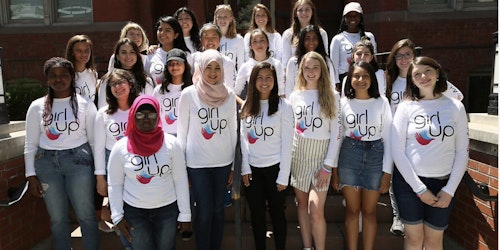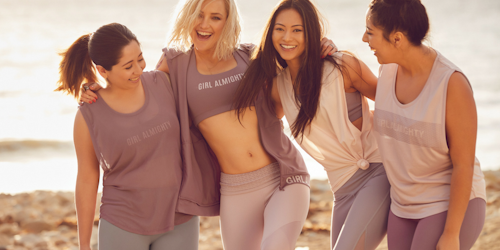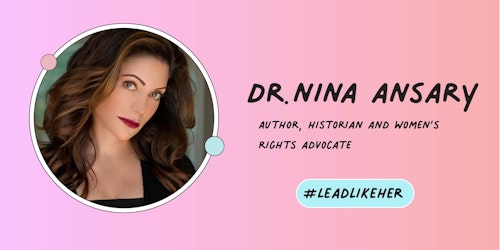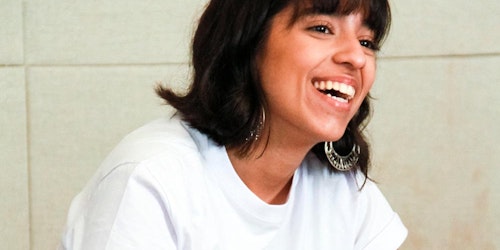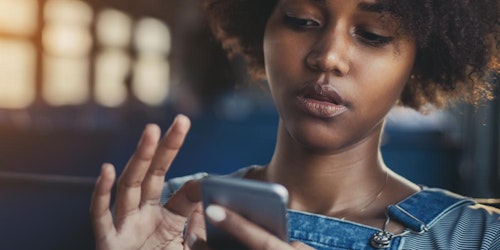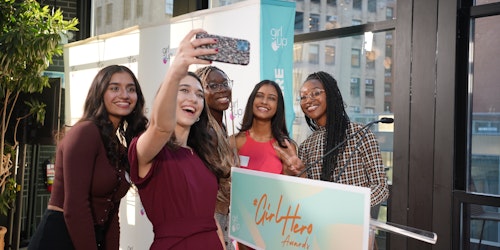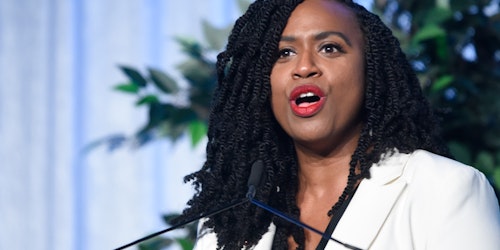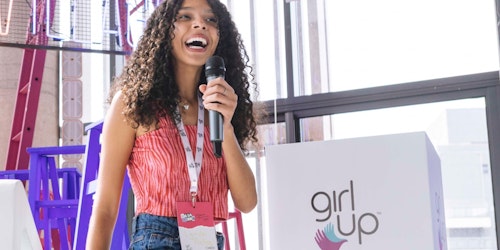Although MuslimGirl.com may no longer be a “little blog” and founder Amani Al-Khatahtbeh may no longer be a high school teenager creating content from her New Jersey bedroom, its quest to amplify young Muslim women voices, diversify their representation in the mainstream media, and create a more inclusive world is far from over. What originally started more than a decade ago as a “passion project” for the then-17-year-old digital entrepreneur to give young Muslim women a “space of their own” has since grown into an ever-expanding global media platform with millions of online visitors and hundreds of millennial contributors from around the world. Unafraid to openly tackle taboo topics and frame current social issues from a young Muslim perspective, the #MuslimGirlArmy is rewriting the stereotypical narrative around modern Muslim women and reclaiming their identity one story at a time.
On January 27, 2017, former President Trump signed an executive order banning travel from several predominantly Muslim countries. Amani immediately sprang into action and, exactly three months later, launched the first official Muslim Women’s Day—a worldwide campaign during Women’s History Month dedicated exclusively to celebrating Muslim women and sharing their unique individual and collective experiences on an international level. “With the sudden escalation of hate crimes especially targeting veiled Muslim women, we wanted to create a moment to respond to the hate with love,” explained the Jordanian-American activist. “We called upon our partners in the mainstream media space where we were now suddenly assuming this very large and influential role when it comes to Muslim issues to pledge this one day to centering our voices online, to creating content that is told by us that highlights the work that deserves to be talked about.”
In honor of this year being the fifth annual Muslim Women’s Day, the Muslim Girl Foundation hosted a first-of-its kind virtual summit last week. Featuring inspiring panels on the power of sisterhood and female leadership, surprise appearances from Muslim celebrities, and honest conversations about activism and allyship, the all-day event on March 27 aimed to empower not only the hundreds of thousands of MuslimGirl followers but also the many participants of all religious backgrounds to make actionable social change in their communities. As the dust settles on yet another successful Muslim Women’s Day, Girl Up spoke with Amani about the impact of this inaugural digital summit amidst a global pandemic, the role of technology in empowering underrepresented voices, and why Gen Z is an “unstoppable” force with unlimited potential.
Why did you originally launch MuslimGirl.com more than a decade ago and how it has impacted your life and you hope the lives of other young Muslim women since its start?
MuslimGirl was our way of creating a space online for our voices to talk about the issues and conversations that matter to us. When I was a teenager, the lack of representation that I saw in the world around me and the very few times that I heard my identity be talked about was never Muslim women allowed to do the talking or to be the ones leading that conversation. I started MuslimGirl because I couldn’t find that community online that I saw and that I yearned for, especially growing up in a homogenous hometown where I was one of the few girls that looked like me or came from my background. I hoped that if we created a place for us, that we could find each other and really share our experiences with one another, navigate that adversity that we may be experiencing, and really be able to speak for ourselves and represent our own behalf.
Have you seen the perception and treatment of Muslim women change over the past few years?
Beyond recognition. Even to think about where the state and condition of Muslim women’s media representation was five years ago before MuslimGirl came onto the scene, it truly is unrecognizable. One of the things that we identified was an issue early on was the very few positive stories there were about Muslim women. The majority of stories were always about us being oppressed and that we needed to be liberated. That really took away so much of our agency because it allowed all these other voices to take up that space and say, ‘this is what Muslim women need; this is how we have to liberate them and help them’ in ways that were ultimately harmful for our community. Aside from that, the very few times that we did see positive stories, they always focused on the hijab. They always focused on the way that a Muslim woman dresses as if that’s the most important part of who we are. That obviously othered us even more and really limited the types of narratives that we could put out there. So, we wanted from the very beginning to de-emphasize all that attention on the hijab and instead really elevate the work and the personalities, the humanity behind the Muslim women that make up the MuslimGirl Army. Just by the sheer authenticity of not only representing the spectrum of experiences that make up the Muslim woman at large, but also our team being true to ourselves, started to rebrand Muslim women in the mainstream from being these oppressed women that needed help. We walk in a legacy of speaking truth to power and this is who we are. We’ve been doing the work for so much longer than anyone even realizes, and I think my favorite part is what you see now when you think of Muslim women being represented in the media. Obviously, there’s still so much more work to be done. There’s so much to be said about Muslim women commonly being represented as lighter skinned, as covering their hair, as being of a certain type, but I think just comparatively from where we were, it’s become almost impossible to talk about Muslim women without including Muslim women, and that was the exact goal we had from the very beginning.
You’ve talked a lot about rewriting the narrative, de-emphasizing the hijab, and making sure that Muslim women are seen by who they are and what they’ve done—not with what they wear. How do you think technology has played a role in reshaping this perception of Muslim women?
I don’t think that MuslimGirl would exist if it weren’t for social media at all. You have to think of me being a daughter of immigrants from a low-income family and growing up isolated. It wasn’t like I had any resources available at my fingertips or that my friends or peers had any exceptional resources by any means. We literally used whatever was available to us, which at that time were our cell phones, our laptops, and being able to get on the internet. The thing that I think was most powerful about that was the fact that social media takes away a lot of those boundaries, a lot of the borders. It allowed us to connect with other Muslim girls from so many different walks of life. Especially because at the time—when you’re talking about comparatively where we were to where we are now—back then it was really scary for Muslim girls to openly talk about taboo topics related to our identities. One of the first stories that we ever published was about our menstruation and at the time, nobody was talking about that. It was very organically inspired by a lunch table conversation I was having with my girlfriends as a teenager and we realized that if we have these questions, there have to be other people with the same questions too but they’re too embarrassed to talk about it. I remember at that time, some of my friends were too embarrassed to even attach to their name to it and I feel like very early we recognized that as an asset of being online too—that it’s allowing this open space where girls and Muslim women started to feel safer to be able to talk about these things that they might otherwise not feel like they had that openness to be able to do so. I don’t think we at all would be capable of the impact that we have had up to now if it wasn’t for our access to technology, especially to the internet and social media.
Speaking of technology opening up spaces to have these types of honest discussions, you’ve just had your first-ever virtual summit for Muslim Women’s Day! How did it go and how did it compare to past celebrations?
It was successful by every definition that I can attribute to it. Our goal by creating a digital summit was to capture all the conversations that we’ve been coordinating with our partners in the mainstream across so many different platforms and to create one place where everyone online can follow along for the day. The hope was that we’d be able to bring the Muslim women at the forefront of today’s culture into the same space alongside the industry allies that have been empowering us up to this point and that’s exactly what we were able to do. For the first time, we were seeing these incredible Muslim talents—ones that deserve recognition, deserve to be elevated—in conversation with folks that are our fixtures in the spaces that we’ve been seeking and working hard to break into, and I think that’s so transformative and powerful. It’s crazy that this is the first time we have a program like this, by Muslim women for Muslim women, and the fact that we’ve got so much support across the board from not just our leadership and our audience but also from our partners and our allies that recognize the value in that and the purpose of us holding that space.
It’s now been 5 years since you created the first Muslim Women’s Day. How has it evolved over the past 5 years and where do you see it going in the next 5 years?
I can’t believe it’s our fifth campaign because when we first started it, we had no expectations for it. We had no expectation if it was going to be a one-time thing or if we were going to keep organizing it, but just seeing the incredible response from the jump—not only from the partners that were involved but also how much it meant to Muslim women online—we just kept going with it and will run with it for as long as there’s a need for it. I think the thing that I’m most proud of is that it’s created opportunities for so many Muslim women to break into the media and get platforms that they rightfully deserve; it’s created opportunities for bylines and for creative work in these spaces that they might otherwise not have access to. I think getting more and more of our community into these spaces is the most sure-fire way that we can take down the idea that we’re one homogenous group, that we can be all lumped together and spoken on behalf of, because the more we take up space, the less that that will even be possible.
Why was the theme for this year’s campaign “healing, resilience, and renewal”?
We’ve had to cover some heavy topics over the past few years for Muslim Women’s Day out of necessity and out of urgency. Because we started Muslim Women’s Day in response to the travel ban and this became the first year that the travel ban finally came to an end, it truly has been a full circle year for us and one that we wanted to respond to with a moment of celebration that we feel Muslim women and so many women of different backgrounds rightfully deserve. We’re coming out of a pandemic that disproportionately impacted our communities and we’re coming out of a political era that you really can’t even measure the impact that it’s had on us, so we felt let’s have this moment of celebration for us and focus on that feeling, that resilience, that’s going to bring us to the next chapter.
Do you think the pandemic will have an impact on the progress made so far in increasing visibility, breaking glass ceilings, and encouraging change?
It’s not lost on me that the pandemic has caused a lot of work to unfortunately be backtracked or be hit on a pause. We were very mindful of the fact that with the theme of ‘healing, resilience, and renewal’ that we didn’t want to sweep under the rug the very real experiences that our community has had to endure as a result of the pandemic over the past year. But we did want to present those experiences through the lens of strength. I think probably the biggest takeaway from this experience of the pandemic is that it really emphasized to a lot of us what the inequity looks like between our different communities and the privileged—for those that are privileged—recognizing how much better off they have it than others in our society that the system neglects. I think the pandemic has reaffirmed the necessity of our work.
You started MuslimGirl.com as a teenager and a lot of your content is written by young Muslim women for young Muslim women. What role do you think Gen Z plays in amplifying and empowering these underrepresented voices?
I don’t think the world stands a chance against Gen Z. I think we’re witnessing a generation take on the leadership that we all hope for them. Our force is going to be unstoppable for that progress and that new role that we all are working towards and want to see happen. Again, with the way that technology is going, especially social media, the possibilities are ultimately endless. Most important is the fluency of that technology—not just an access to it and ability to use it but also how to best communicate effectively through it. That increased access to it that we see for our generation is really going to propel us forward to new levels, new heights. Even right now, I think that it’s way easier to go viral these days than it was when we first started MuslimGirl. It’s way easier to use different mediums to connect messages to people you might not be able to reach than it was when we started and the resources that we had. Just witnessing the quick evolution of the tech is super exciting and I really encourage everyone to be resourceful with these resources that are far more available now. Really, the potential is limitless.
How can more youth tap into that limitless potential and get involved in this movement towards equality and inclusivity in their own communities?
I always say that it starts with the individual and their community. One of the most common questions I get from people is, ‘How do I build a following? How can I make an impact if I only have 17 people following me on Instagram?’ But that change you can make for those 17 people following you can be world-changing for them and for the people that they’re going to touch across their lifetimes. The butterfly effect is real. You can’t measure the impact you’ll have on one person and how that will ripple outwards. That’s really where it all starts; the foundation block of any society is the individual. You have to first check yourself, educate yourself, listen, open your ears up, and hear from the folks that are directly impacted. From there, use your knowledge to educate the people around you. Start at the dinner table, start in your neighborhood, in your local clubs. That’s really the most important thing. And it goes both ways too. What’s the point of starting from the top if you’re also not taking care of yourself and the people around you?
If you want to learn more about MuslimGirl.com and other trailblazing organizations fighting for inclusivity, follow Girl Up on Instagram, Twitter, and Facebook and watch this space for more conversations with the world’s most influential female changemakers.
This conversation has been edited for clarity and length.
